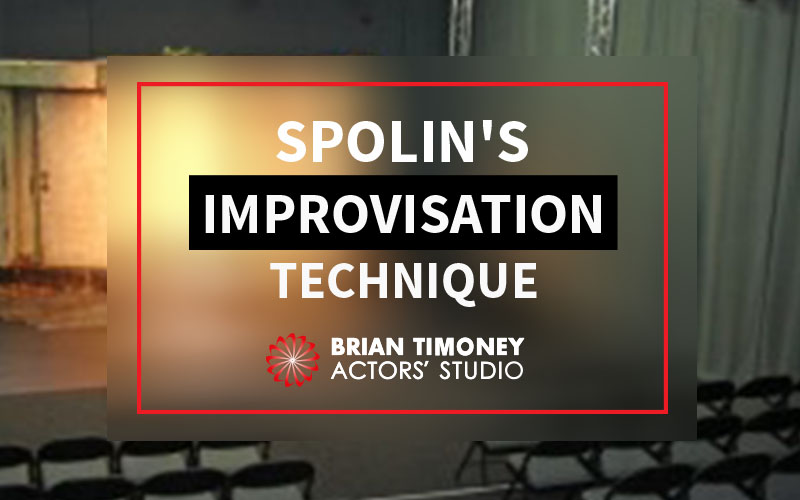You might not recognise Viola Spolin’s name, but you’ll definitely recognise her techniques: Spolin invented theatrical improvisation.
To improvise is to perform spontaneously, or to create with what surrounds you in the moment; essentially, it’s the art of being unprepared.
Born in Chicago in 1906, Viola Spolin is internationally recognised for her “games” techniques, which still bring spontaneity and fun to the actor’s classroom along with valuable stage skills.
She initially trained as a settlement worker, which exposed her to teaching methods that related to group leadership and social work; she quickly saw how useful these games could be in a dramatic environment.
“Theatre games” were easy to learn, cross-cultural, and highly effective for training groups of actors. Much work has been done since on the value of learning through play, but Spolin didn’t have this to draw on; she just knew improvisation had to be done this way.
The games emerged out of necessity… When I had a problem [directing], I made up a game. When another problem came up, I just made up a new game. – Spolin, 1974.
In 1946 Spolin founded the Young Actors Company, a school for children aged six and older. This was her testing ground for theatre games, and when she quit teaching children to move back to Chicago she took these lessons with her. The Playwrights Theatre Club, Compass, and Second City Company would all learn from her and keep her lessons for future generations.
Why Teach Through Games?
The reason theatre games are so effective is that they don’t require prior reading or contextual knowledge. Any student can pick them up, even with language or cultural barriers. The games have a liberating effect, allowing for spontaneous performance within a group; there is no shame and no focus on the individual.
Because the games work the same way for everyone, they can work as a way to relieve tension in actors; in fact, many classes use improvisation exercises as a warm-up to class, in the same way many method actors use relaxation.
Playing the games increases these skills while also increasing the sensitivity of actors to their own creativity and others. If you form a bond with your scene partners through exercises like Spolins, you need never worry about forgetting your lines on stage again; you will be able to read each other and continue spontaneously, as though there’s no problem at all.
Improvisation is still one of the most popular forms of theatre, and it isn’t just actors who take lessons: politicians, comedians, or just shy folk all turn to improvisation as a way to improve their presence and coherence in public.
We’re not here to talk about improv classes for your stutter, though – how do Spolin’s techniques help you – a method actor?
Improvising On Stage
For all actors, but more particularly method actors, preparation is the biggest part of delivering an authentic acting performance. We spend weeks learning lines, probing our emotional memories, and picking up character habits.
Spolin’s techniques help method actors with spontaneity and creativity on stage without disrupting months of rehearsal. Her techniques take the form of games, which stimulate actors to unlock creativity and attain a high degree of “presence” in the moment. Spolin calls the moment you become present a point of concentration.
In terms of acting ability, lessons using Spolin’s techniques can help you to develop the following skills:
- Physicalisation
- Spontaneity
- Intuition
- Audience awareness
- Transformation
Techniques
Group Counting
Sitting in a circle, actors count aloud, one by one, as high as possible. Instead of going around the circle, however, the actors simply count out loud when they feel the need. If two people speak at once, it’s game over.
This helps actors working in a group to tune into each others’ physical signals, and teaches subtle communication; these are very valuable understandings to have with a scene partner.
Tug of War
Played, of course, without a real rope. The actors should imagine the rope in their minds, and truly fight for possession of it as a team. This form of improvisation teaches actors to build on each other, and work as a team to create an authentic world.
Gibberish
This exercise is a demonstration, which is common for one of Spolin’s exercises. An actor tries to communicate with their audience while speaking in complete gibberish. This encourages actors to forge a personal connection with the audience; to try to honestly impart a part of their emotional reality. Many beginning actors have a tendency to look out over the heads of people, as though they’re not there – but they are.
After communicating in gibberish, the actor then repeats the same thing, but using real words. A close relationship with the audience should develop as a result.
Who Started the Motion?
An actor leaves the room while the rest pick a leader. The leader will initiate a motion, which everyone in the group must copy; motions such as nodding their head or clicking their fingers. They will change the motion now and then. When the first actor returns to the room, they have to determine who the leader is.
This exercise teaches the group at large the importance of taking cues and practicing uniformity as a group, but also helps the guessing actor to rapidly identify scene leaders.
More than 200 games are detailed in Spolin’s book Improvisation for the Theatre, and acting courses around the world still teach them. Her games originated outside of the theatre, and although improvisation theatre is here to stay the games are open-source; corporate retreats, primary schools, and therapeutic classes all use her theatre games to develop self-awareness and build teams.
Although we focus on Strasberg’s method here at Brian Timoney, our Ultimate Acting Programme covers the techniques of major acting coaches like Viola Spolin, too. If you have an insatiable curiosity for all acting techniques, then ask us if we can help fill you in!


